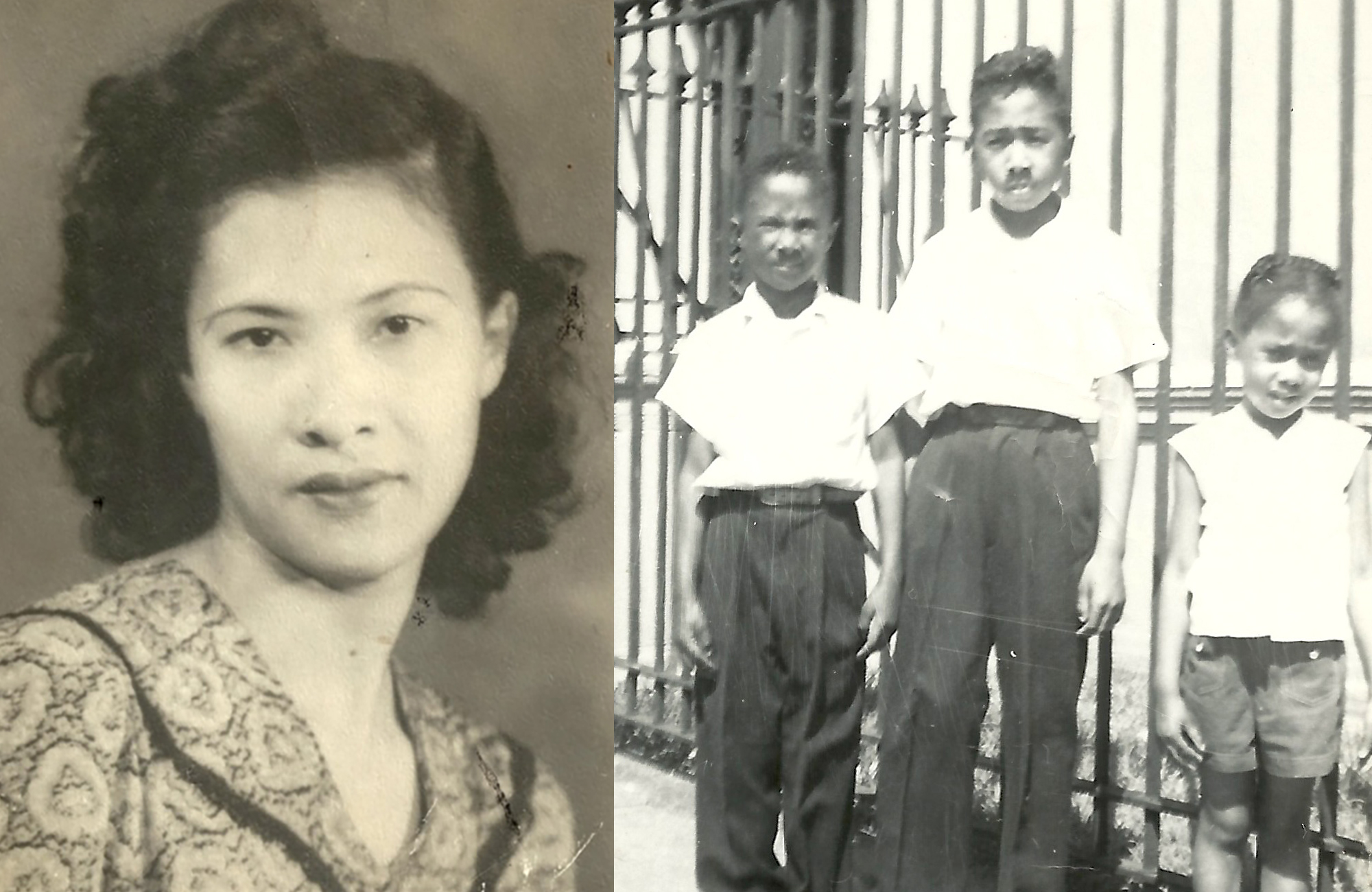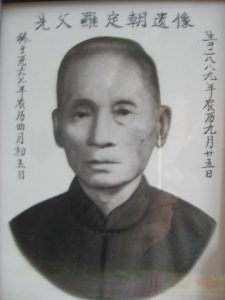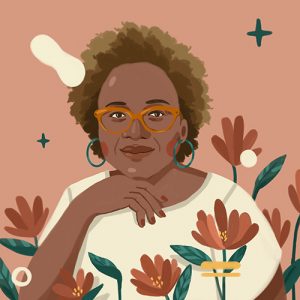
At age 58, Paula Madison was at the peak of her career—an NBC executive overseeing diversity and inclusion—when she decided to walk away from it all. She went in search of her grandfather, a Chinese merchant who settled in Jamaica. But this decision was anything but rash; everything she had accomplished to this point, including her career as a journalist and network brass, had been leading to this moment. Madison’s vision for her life’s work began much earlier, when she was just six years old.
When Paula Madison was a child, her mother Nell Vera Lowe—a statuesque Jamaican woman of Chinese and African ancestry—always emphasized that family was the most important thing in life. However, young Paula was confused. Her mother arrived in Miami on a plane and then boarded a train to New York alone and never looked back. Where was her family?

“I did ask her that out loud once, you know, she didn’t answer me. She just was really sad. And then I realized in my six-year old brain that the sole reason for my mother’s consuming sadness—her melancholy—was because she didn’t have her family,” Madison recounts. “So when I was six years old, I promised, ‘I’m going to make my mother happy, I’m going to find her family.’”

One family member in particular—her paternal grandfather—captured Madison’s imagination. All she knew about was that he was a Chinese merchant named Samuel Lowe, and that he left Jamaica to return to his homeland when her mother was a little girl.
“China’s a big place. I don’t know many Chinese people. How is this going to happen?” she wondered. Yet the seeds of this idea took root. The journey from Harlem to China would take decades, with many detours along the way. First stop: Vassar College, where Madison majored in history and Black Studies with a concentration in African and Caribbean Studies. Although the school didn’t offer an Asian Studies major, she signed up for a course in Chinese history. As graduation neared, Madison applied to study journalism at Syracuse University’s Newhouse School at the suggestion of a friend who admired her writing skills. Until then, she didn’t even know Black people could be journalists. “I never saw people who looked like me on TV until later,” says Madison. “And I never knew of any black journalists in newspaper until later still.”
This interest in journalism again went back to Nell’s influence. Nell—whose highest level of education was equivalent to elementary school—was a voracious reader of newspapers and used the New York Herald Tribune to teach Paula and her two brothers to read when they were just three years old.
So Madison began her career, moving from newspaper reporter to editor, then rising up the ranks of broadcast management. Her goal: to become financially secure and retire at age 58 to pursue her lifelong dream of finding her Chinese family.
Madison’s older brother Elrick Williams amassed a fortune by starting an algorithmic trading company, trading at the Chicago Mercantile Exchange. He eventually became CEO of The Africa Channel, in which the Williams family is the majority investor. As their search began, Williams—who also recognized the power of multimedia storytelling—suggested that the siblings film their journey. Madison initially balked. “It was very personal. It was going to put me in a light that I’m not used to being. And I’m used to being in charge,” she explains. “I knew it was going to bring me to a puddle of tears.”

The clues quickly fell into place, leading her to Jamaica, Toronto, and finally an emotional return to their ancestral village in China. In 2014, the documentary Finding Samuel Lowe premiered at the Venice Film Festival and was screened at CAAMFest the next year. Madison soon became a CAAM board member.
“Paula brings a valuable personal and industry perspective to CAAM,” says executive director Stephen Gong. “She encourages us to be bold within our organization and challenges outsiders’ notions of the Asian American community.”
Madison now is active in the Hakka Chinese diaspora and a historian of Chinese in the Caribbean. She also spends weeks at a time in China each year, getting to know her extended relatives. At entertainment industry conferences, such as the 2020 Sundance Film Festival, she is an outspoken advocate for better Asian American representation. “We can’t keep pointing to Crazy Rich Asians to prove to white people that we have money,” she says. “That is not solely it.” She especially wants to change the media’s historical over-sexualization of Asian women and emasculation of Asian men. To do that, Madison believes Asian Americans need to become more united with each other—and with other marginalized groups—to confront racism directly, as in the Black Power movement of the 1960s and 70s. “If we have the African diaspora teamed with the Asian diaspora, we would be unstoppable,” Madison declares.
We can’t keep pointing to Crazy Rich Asians to prove to white people that we have money. That’s not solely it.
One thing that excites Madison is finding out that Finding Samuel Lowe became a cult hit among communities of Asian men dating Black women. At a New York City screening, she was surprised when 80 people part of a meetup of couples fitting that demographic showed up. “This is the future,” she told the crowd. “My grandparents are the past. This blending that’s going to come from these people is not brand new.” She points to other places, such as Trinidad and Cuba, that also have a long history of Chinese male workers and merchants marrying and starting families with African and Indigenous women.

Even with the success of the Finding Samuel Lowe documentary produced/directed by Hakka Chinese Jamaican filmmaker Jeanette Kong, Madison still felt like her ancestors had more to say. “I felt like I’d let (my Grandfather) and my mother down,” she admits. “I needed to give them more time so they could be seen more holistically. I’d talked about them as too one dimensional. They appear to be just tragic figures. I thought if I wrote a book I could give them more voice.”
On the heels of the film, she wrote a memoir elaborating on the process of finding her Chinese family. Madison’s love of telling these stories continues. She is now working on a limited television series based on her grandfather and grandmother’s love story, her parents’ tumultuous marriage, and Paula and her brothers’ coming of age in Harlem. The historical settings include Marcus Garvey’s Jamaica, the Black Panther’s and Nation of Islam’s Harlem, and Guangzhou and Shenzhen China during the Sino-Japanese War. She plans to shoot in Harlem, Jamaica, and China with the culturally authentic casting of Chinese in China, as well as Black and Chinese Jamaicans.
You can watch Finding Samuel Lowe at home. Stream the film for free on Kanopy (with a participating library card), or rent it on many other services including YouTube, Amazon Prime, or iTunes.
Check CAAMForward.com throughout the year for other featured storytellers and check out more of artist Resi Baskhoro’s custom illustrations of these creators who are shaping the future of Asian America.



